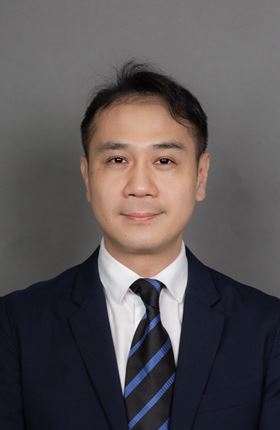
- Y805
- +852 3400 8799
- terence.kw.lee@polyu.edu.hk
- Personal Website
Research Overview
Our research focuses on translational cancer research using hepatocellular carcinoma (HCC) as a model system. We are interested in the identification, characterization, niche interaction, and therapeutic targeting of liver tumor-initiating cells (T-ICs) / cancer stem cells (CSCs); drug resistance; cell therapy; targeted and immune therapies; and the pivotal role of gut microbiota in cancer development and treatment. Our goal is to translate our basic research into better survival outcomes and improved quality of life of HCC cancer patients.
Research Interests
Education and Academic Qualifications
- Bachelor of Science in Biochemistry, The Hong Kong University of Science and Technology
- Master of Philosophy, The University of Hong Kong
- Doctor of Philosophy, The University of Hong Kong
Academic and Professional Experience
- Associate Editor, Clinical and Molecular Hepatology (2024 - Present)
- Academic Editor, Hepatoma Research (2024 - Present)
- Academic Editor, Scientific Reports (2024 - Present)
- Membership of the FWO Review College, Brussel, Belgium (2024 - Present)
- Member, The European Association for Cancer Research (2023 – Present)
- Academic Editor, Journal of Clinical and Translational Hepatology (2021 - Present)
- Academic Editor, World Journal of Gastroenterology (2020 - Present)
- Council Member, Hong Kong Society for Cell Biology (HKSCB) (2019 - Present)
- Panel Member, National Natural Science Foundation of China (2013 - Present)
- Member, The American Association for Cancer Research (2008 - Present)
Achievements
- Faculty Outstanding Team-Teaching Awards for Teaching (2025)
- Best Editorial Member Award in Hepatoma Research (2024)
- ABCT Excellence Award 2024 (Teaching) (2024)
- ABCT Excellence Award 2023 (Research Output) (2023)
- Faculty Outstanding Researcher (2022)
- Top 2% Scientists (Stanford University) (2023 & 2024)
- Top 1% of Most Cited Scholars in ‘Clinical Medicine’ and ‘All Fields’ of ISI Essential Science Indicators (2013)
- Khoo, U.S.; Gong, C.J.; Lee, T. K. W. Monoclonal antibody for predicting tamoxifen for predicting tamoxifen response in breast cancer patients. (US10823735B2) (2020)
- Khoo, U.S.; Gong, C.J.; Lee, T. K. W. The use of HCN inhibitors for treatment of cancers. (WO2018196782) (2018)
- Wu, X. Q.; Ying, F.; Chung, K. P. S.; Leung, C. O. N.; Leung, R. W. H.; So, K. K. H.; Lei, M. M. L.; Chau, W. K.; Tong, M.; Yu, J.; Wei, D.; Tai, W. C. S.; Ma, S.; Lu, Y. Y.; Lee, T. K. W. Intestinal Akkermansia muciniphila complements the efficacy of PD1 therapy in MAFLD-related hepatocellular carcinoma. Cell Reports Medicine 2025, 6, 101900. DOI: https://doi.org/10.1016/j.xcrm.2024.101900
- Leung, C.; Gurung, S.; Chung, K. P. S.; Chan, S.; Lee, T. K. W. Abstract 574: Adipocyte-derived FABP4 promotes non-alcoholic fatty liver disease (NAFLD)-induced hepatocellular carcinoma by driving ITGB1-mediated β-catenin activation. Cancer Research 2024, 84, 574–574. DOI: 10.1158/1538-7445.AM2024-574
- Lei, M. L.; Lee, T. K. W. Abstract 5356: Wild type Kirsten rat sarcoma (Kras) activation drives evasion of interferon-mediated immunity in hepatocellular carcinoma. Cancer Research 2024, 84, 5356–5356. DOI: 10.1158/1538-7445.AM2024-5356
- Leung, C. O. N.; Yang, Y.; Leung, R. W. H.; So, K. K. H.; Guo, H. J.; Lei, M. M. L.; Muliawan, G. K.; Gao, Y.; Yu, Q. Q.; Yun, J. P.; Ma, S.; Zhao, Q.; Lee, T. K. W. Broad-spectrum kinome profiling identifies CDK6 upregulation as a driver of lenvatinib resistance in hepatocellular carcinoma. Nature Communications 2023, 14, 6699. DOI: 10.1038/s41467-023-42360-w
- Mok, E. H. K.; Leung, C. O. N.; Zhou, L.; Lei, M. M. L.; Leung, H. W.; Tong, M.; Wong, T. L.; Lau, E. Y. T.; Ng, I. O. L.; Ding, J.; Yun, J. P.; Yu, J.; Zhu, H. L.; Lin, C. H.; Lindholm, D.; Leung, K. S.; Cybulski, J. D.; Baker, D. M.; Ma, S.; Lee, T. K. W. Caspase-3–Induced Activation of SREBP2 Drives Drug Resistance via Promotion of Cholesterol Biosynthesis in Hepatocellular Carcinoma. Cancer Research 2022, 82, 3102–3115. DOI: 10.1158/0008-5472.CAN-21-2934
- Lee, T. K. W.; Guan, X.-Y.; Ma, S. Cancer stem cells in hepatocellular carcinoma — from origin to clinical implications. Nature Reviews Gastroenterology & Hepatology 2022, 19, 26–44. DOI: 10.1038/s41575-021-00508-3
- Leung, H. W.; Leung, C. O. N.; Lau, E. Y.; Chung, K. P. S.; Mok, E. H.; Lei, M. M. L.; Leung, R. W. H.; Tong, M.; Keng, V. W.; Ma, C.; Zhao, Q.; Ng, I. O. L.; Ma, S.; Lee, T. K. W. EPHB2 Activates β-Catenin to Enhance Cancer Stem Cell Properties and Drive Sorafenib Resistance in Hepatocellular Carcinoma. Cancer Research 2021, 81, 3229–3240. DOI: 10.1158/0008-5472.CAN-21-0184
- Leung, C. O. N.; Tong, M.; Chung, K. P. S.; Zhou, L.; Che, N.; Tang, K. H.; Ding, J.; Lau, E. Y. T.; Ng, I. O. L.; Ma, S.; Lee, T. K. W. Overriding adaptive resistance to sorafenib via combination therapy with SHP2 blockade in hepatocellular carcinoma. Hepatology 2020, 72, 155. DOI: 10.1002/hep.30989
- Ma, M. K. F.; Lau, E. Y. T.; Leung, D. H. W.; Lo, J.; Ho, N. P. Y.; Cheng, L. K. W.; Ma, S.; Lin, C. H.; Copland, J. A.; Ding, J.; Lo, R. C. L.; Ng, I. O. L.; Lee, T. K. W. Stearoyl-CoA desaturase regulates sorafenib resistance via modulation of ER stress-induced differentiation. Journal of Hepatology 2017, 67, 979–990. DOI: https://doi.org/10.1016/j.jhep.2017.06.015
- Lo, J.; Lau, E. Y. T.; Ching, R. H. H.; Cheng, B. Y. L.; Ma, M. K. F.; Ng, I. O. L.; Lee, T. K. W. Nuclear factor kappa B–mediated CD47 up‐regulation promotes sorafenib resistance and its blockade synergizes the effect of sorafenib in hepatocellular carcinoma in mice. Hepatology 2015, 62
- Lee, T. K. W. Genetics: Gender (Encyclopedia of Gerontology and Population Aging, Springer Nature Switzerland AG 2020 D. Gu, M. E. Dupre (eds.).
- Lei, M.M.; Lee, T. K. W. Genetics: Gene expression (Encyclopedia of Gerontology and Population Aging, Springer Nature Switzerland AG 2019 D. Gu, M. E. Dupre (eds.).
- Lee, T. K. W.; Castilho, A.; Ma, S.; Ng, I.O. Epithelial-mesenchymal transition in cancer stem cells. In: Cancer Stem Cells (XY Guan, Ed. Research Signpost 2010, ISBN: 978-81-7895-465-3.




